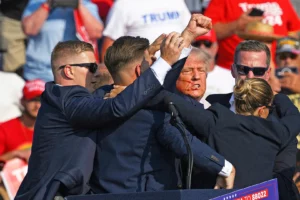Kazakh President Kassym-Jomart Tokayev has great intentions to transform the country into a modern state with the balance of power redistributed between the executive, legislative and judiciary government bodies. His policy reforms would develop Kazakhstan into a state where the real beneficiaries of Kazakhstan’s wealth and prosperity are its citizens.
The reforms have been in place since Tokayev took on the presidential seat on June 12, 2019. During his presidency, Tokayev has enacted several reforms including increasing workers’ salaries, reducing corruption, abolishing capital punishment, and decentralizing the local government.
Tokayev has emphasized the importance of local governance, marked by the first-ever direct election of village akims (local government head) and he plans to introduce three new regions that will bring the government bodies closer to the populations they represent. Kazakhs will get to vote for akims of oblasts, major cities, and the capital. He also initiated a referendum, which was held on June 5, 2022, with some 77.18 percent of Kazakhs (6.1 million of people) voting in favor of the constitutional Amendments.
In his Presidential Address last month, Tokayev outlined another batch of reforms. One of which he introduced a legislation preventing all future presidents from serving more than seven years.
Kazakhstan will hold its presidential election on Nov. 20, with experts and scholars viewing the election and the recent policy limiting the presidential term as a new hope for political reforms in the country. As of Oct. 12, five presidential candidates have registered at Central Election Commission, including two female presidential candidates, which is a first in the history of Kazakhstan.
While Tokayev will also run in the November election from the people’s coalition, a group of political organizations and associations that proposed to nominate him as a candidate, he has not been affiliated with any party since he stepped down as Amanat party chair in April. He reiterated that the head of state must be “politically neutral” and should not represent any political party, saying it is a “great honor and responsibility” to run from the popular coalition.
The shorter presidential term is a unique political reform in the Central Asia that will help stabilise Kazakhstan. Instead of adopting short term or ad hoc policies to secure the next term, the focus of the serving presidents will shift to long term planning in the best interest of the country. It is a real breakthrough in developing democracy in Kazakhstan.
In addition to the November presidential election, Tokayev has called for the election of the Mazhilis (lower house of parliament) and Maslikhats (local representative bodies) in the first half of 2023.
The reform package implemented by President Tokayev aims to decentralize power, prevent only the privileged from having access to national resources, institutionalise political opposition, strengthen the authority of local and regional governments, and increase participation by the people in governing the country. Kazakhstan looks like it is well on its way to become a modern democratic nation with strong presidential influence and a people-first parliamentary system.
Report by Aidar Zayman
















